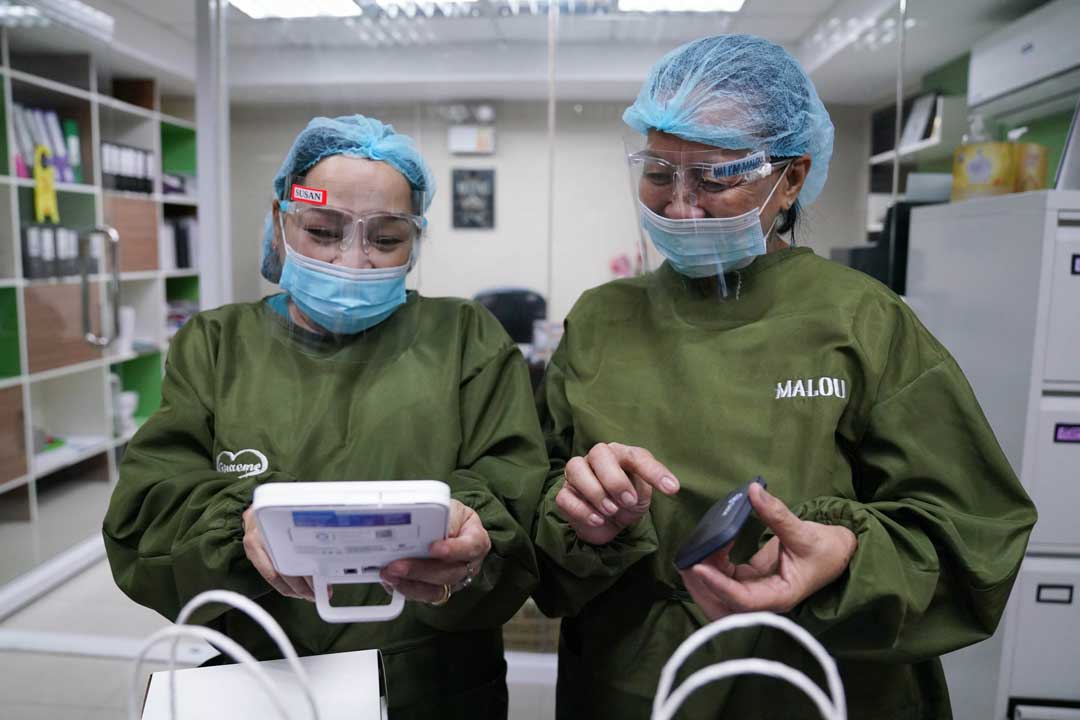Aside from being an investment in the foundation of a healthier, more sustainable future for all, Universal Health Coverage (UHC) can also drive economic growth, development, and wealth.
Turning UHC into reality requires sufficient, sustained, and innovative financing mechanisms as well as new partnerships. We must work together to ensure that more resources are invested — and invested better and efficiently. As such, the biopharmaceutical industry supports the following policies:
- Ensure prioritization of (and enhancement of budget allocations to) health, including disease prevention, in national budgets by setting appropriate national financing targets for quality investments which minimize out-of-pocket (OOP) payments by patients and healthy people. This is important as Filipino household OOPs remain among the highest in the region at 44.7% in 2020.
- Create fiscal space for health by improving efficiency and effectiveness of existing health budgets. A positive development in this area is the implementation of the Mandanas-Garcia Ruling, which mandates the transfer of an increased share of national government tax revenue to local government units (LGUs) for capacity-building in healthcare service delivery. This is an opportunity to lower expenses paid directly by patients. The Social Weather Stations survey released last month said that nearly all Filipinos believe that the government must provide free medicines to those who need them. It is estimated that for every P100 spent on medicines, P85 is OOP.
- Finance with a range or mix of models. Select a model tailored to a country’s social and political framework, but one that ultimately will be sustainable. Our country’s public health sector is largely financed through a tax-based budgeting system in which health services are delivered by government facilities run by the national and local governments. The private sector can be tapped for recommendations and collaborations that will ultimately benefit the people. For example, pooled procurement of medicines as done in a number of countries has resulted in greater purchasing capacity for governments. Multi-year obligations also commit providers to supply medicines sustainably, contributing to pharmaceutical security.
- Develop and enable innovative health financing mechanisms tailored to the unique needs of each country, such as health insurance and impact bonds. The Universal Health Care Act of 2019 reforms the health financing landscape in the country by reorganizing roles of institutions, shifting to more prepayment schemes, and improving overall purchasing arrangements. The goal is to lessen reliance on OOP spending, and shift more heavily to prepayments in the form of government allocated budget and PhilHealth payments, according to health systems development organization ThinkWell.
- Employ a whole-of-government, whole-of-society approach that moves away from siloed health spending. The adoption of this approach is one of the principles and policies of the UHC Act, which fosters dialogue and multisectoral partnerships approaches across government and with other stakeholders. The landmark law also promotes a people-oriented approach for the delivery of health services that is centered on people’s needs and well-being, taking into account differences in culture, values, and beliefs.
- Engage employers to include elements of health in employee benefit packages or other incentives. Employers are mandated to register their employees with PhilHealth and remit their premium contributions regularly, on time and accurately. The Employers Confederation of the Philippines (ECOP) participates in consultative meetings organized by PhilHealth related to UHC and employee health benefits.
- Promote digital health technologies to improve health system efficiency and invest in suitable data ecosystems, including data infrastructure and strategies for data use. Digital health technologies impact every aspect of the biopharmaceutical value chain, from drug discovery to clinical development through medicine or vaccine launch and support for patients, caregivers and healthcare professionals. The biopharmaceutical industry is investing in digital health to transform its work in development and commercial settings and to enhance the contributions it makes to patients and health systems around the world. To do this sustainably, the biopharmaceutical industry is committed to collaborating with other stakeholders to foster changes to policy environments that will deliver benefits from digital health solutions to patients and health systems.
Teodoro B. Padilla is the executive director of Pharmaceutical and Healthcare Association of the Philippines (PHAP), which represents the biopharmaceutical medicines and vaccines industry in the country. Its members are at the forefront of research and development efforts for COVID-19 and other diseases that affect Filipinos.

